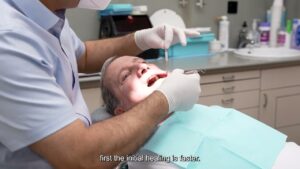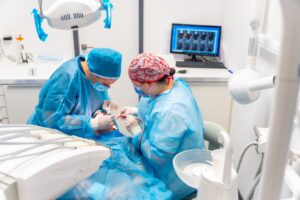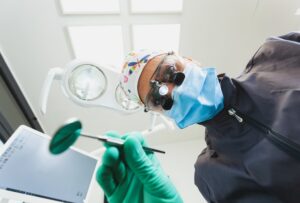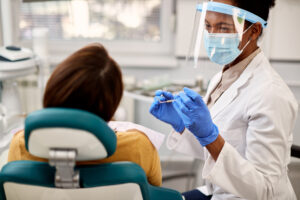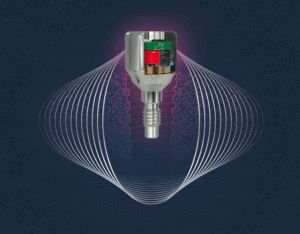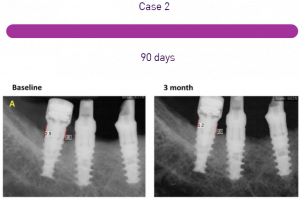Innovative Solutions for Peri-Implantitis at Magdent
Advancing Bone Growth in Inflammatory Conditions
At Magdent, we recognize the challenges posed by peri-implantitis, a condition that demands innovative solutions and a forward-thinking approach to dental care. While there is no one-size-fits-all treatment for peri-implantitis, Magdent stands at the forefront of technology, pioneering advancements that set us apart in the field.
Breakthrough Technology:
Growing Bone in Inflammatory Conditions
Peri-implantitis often leads to the loss of both soft and hard tissues surrounding dental implants, creating a need for effective regenerative solutions. Magdent proudly introduces groundbreaking technology that has demonstrated its unique ability to stimulate bone growth even in inflammatory conditions.
Key Features and Benefits:

Unprecedented Results
Magdent's technology represents a significant breakthrough in the realm of dental implant care, showcasing remarkable results in bone regeneration, even in the presence of inflammation

Innovative Approach
Our approach is rooted in innovation, leveraging state-of-the-art techniques to address the challenges posed by peri-implantitis comprehensively

Evidence-Based Success
Unlike traditional methods, Magdent's technology is backed by evidence, demonstrating its efficacy in clinical settings. Our commitment to research and development ensures that our patients receive the best possible care.
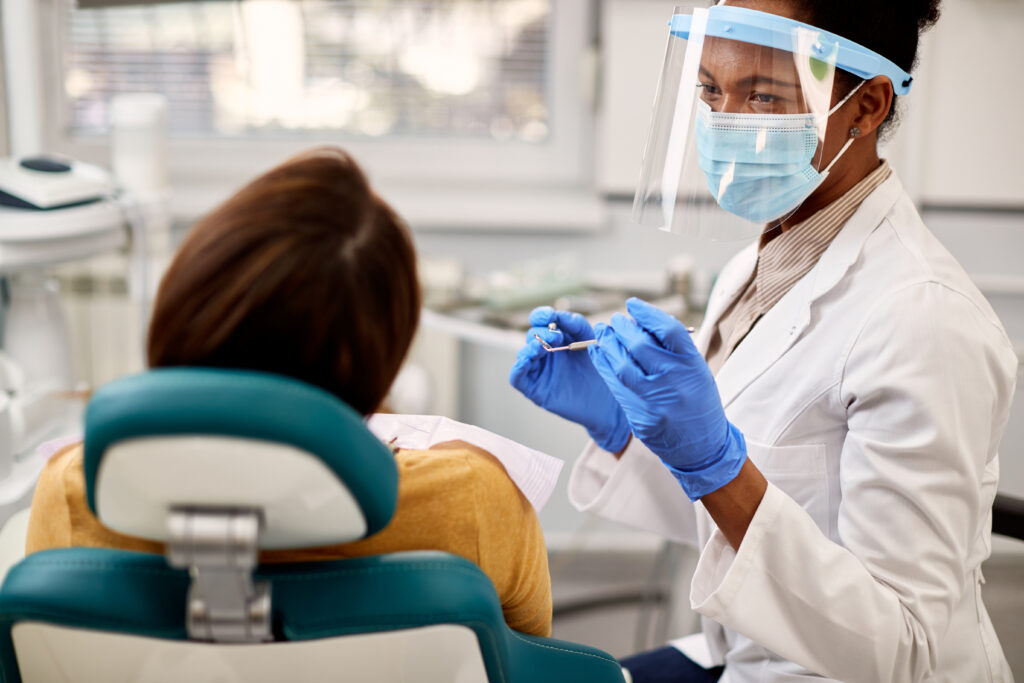
Why Choose Magdent?
Proven Track Record
Magdent's technology has demonstrated its ability to not only treat peri-implantitis but also promote bone growth, providing a holistic and lasting solution.
Commitment to Excellence
Magdent is committed to excellence in dental care. Our team of experienced professionals, coupled with cutting-edge technology, ensures that you receive the highest standard of treatment.
Your Journey to Healthy Implants Starts Here
Experience the difference at Magdent. We invite you to explore our innovative solutions and discover how our technology is reshaping the landscape of peri-implantitis treatment. Reach out to Magdent at [email protected] for additional information and a consultation with our experts to embark on your journey to optimal oral health and implant longevity.
Reasons for Peri-Implantitis:
Poor Oral Hygiene
Biofilm Formation: Inadequate oral hygiene practices can lead to the formation of biofilm on implant surfaces. This biofilm, consisting of bacteria, can trigger inflammation in the surrounding tissues.
Smoking
Reduced Blood Flow: Smoking has been linked to reduced blood flow, compromising the body's ability to fight infection. It also affects the immune response, making implant sites more susceptible to inflammation.
Medical Conditions
Diabetes: Individuals with diabetes may be at a higher risk due to compromised immune function and impaired wound healing.
Autoimmune Disorders
Conditions that affect the immune system may increase vulnerability to infections around dental implants.
Inadequate Treatment Planning
Poor Implant Placement: Improperly placed implants or insufficient bone support can contribute to the development of peri-implantitis.
Genetic Factors
Susceptibility: Genetic factors may influence an individual's susceptibility to peri-implantitis. Some people may be more prone to inflammation and infections.
Inflammatory Response
Body's Reaction to Implants: The body's immune response to the presence of dental implants can sometimes lead to chronic inflammation if not properly managed.
Challenges in Treating Peri-Implantitis
Late Detection
Peri-implantitis may not exhibit noticeable symptoms in its early stages. Late detection can make treatment more challenging and increase the risk of implant failure.
Biofilm Removal
Effective removal of biofilm from implant surfaces is crucial but challenging. Traditional oral hygiene practices may not be sufficient, necessitating professional intervention.
Soft and Hard Tissue Loss
Peri-implantitis can result in the loss of both soft and hard tissues around the implant. Regenerating these tissues poses a significant challenge in the treatment process.
Access Limitations
The location of the implant, especially in areas with limited accessibility, can complicate the cleaning process and hinder effective treatment.
Systemic Health Factors
Underlying systemic health conditions, such as diabetes or compromised immune function, can impact the body's ability to respond to treatment and heal effectively.
Patient Compliance
Successful treatment often relies on patient compliance with post-treatment care and maintenance. Ensuring patients follow prescribed oral hygiene routines and attend regular check-ups is crucial.
Comprehensive Treatment Approach
Addressing peri-implantitis often requires a comprehensive approach involving professional cleanings, antimicrobial therapy, and, in severe cases, surgical intervention. Coordinating these elements can be complex.
Preventing Recurrence
Preventing the recurrence of peri-implantitis is challenging. Long-term management involves ongoing monitoring, patient education, and a commitment to maintaining optimal oral hygiene.
